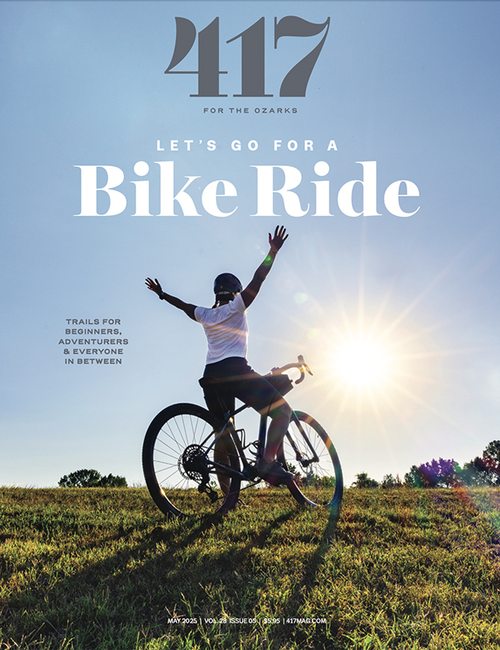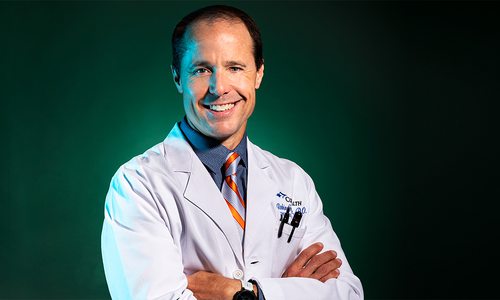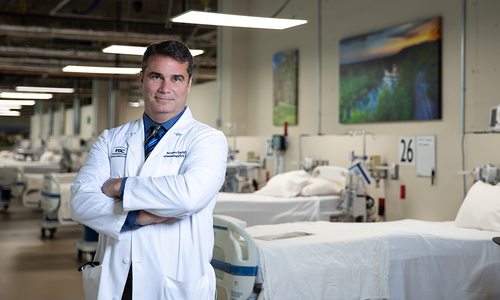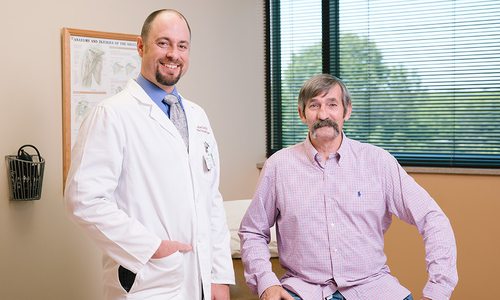Top Doctors
Wallace Lea Beat the Odds with Help Form Dr. Robert McNab and Freeman Hospital
After 45 days in the hospital due to COVID-19, Wallace Lea was able to head home having beat the odds that were stacked against him, thanks in large part to Dr. Robert McNab and the team at Freeman Hospital in Joplin.
By Ettie Berneking
Jul 2020

At 84, Wallace Lea falls into the most at-risk category when it comes to COVID-19. According to the Center for Disease Control, eight out of ten deaths reported in the United States have been in adults 65 years old or older. So when Lea showed up at Freeman Hospital March 23 and had to spend 14 days on a ventilator, doctors didn’t think the octogenarian would pull through. “He came in with profound shortness of breath,” says Dr. Robert McNab (Top Doctors runner up in Hospitalists for Joplin), who led Lea’s care. “Within 24 hours his breathing went from not the best to having to be intubated emergently to control his oxygenation. The air around you is 21% oxygen, and we were giving him 100% oxygen.”
Lea first started feeling ill on the drive home after he and his wife, LaVetta, visited family in Mississippi in early March. A few days later, he felt worse and told his wife he was having trouble breathing. “The last thing I remember was getting up Monday night,” Lea says. “I don’t remember anything else until three weeks later.”
Lea was the first patient at Freeman Hospital to test positive for COVID-19, but the hospital was ready. “We had built an isolation ward for COVID,” McNab says.
The unit had special ventilation and negative pressure, so air in the unit is sucked out to prevent it from escaping into the rest of the hospital. Anytime a physician or nurse tended to Lea during the 45 days he was in the hospital, they wore gowns, gloves, an N95 mask and a face shield. “COVID is everyone’s problem,” McNab says. “If I’m treating someone who has a heart attack, they can’t give me the heart attack.” But with COVID-19, patients are literally shedding the disease into the air. “That can have detrimental effects on the health care workers,” McNab says. “You’re working in an environment that’s not safe for anybody.”
For 14 days, Lea remained intubated. When his oxygen levels improved, and he was taken off the ventilator, he woke up to learn his sister Betty Johnston and brother-in-law Art Oestmann, who had both been at the family gathering, had died from COVID-19. “We didn’t know enough,” Lea says. “We were sitting around a card table playing games and didn’t have any thoughts that would have been inappropriate.” LaVetta also tested positive for COVID-19 but only presented GI symptoms.
Lea continued shedding the virus for five weeks and remained in isolation. To see him, his family gathered in the courtyard under his window, and the nurses and physicians became Lea’s support group. “On several occasions, the nurses gathered outside my room and prayed for me,” he says.
As Lea recovered, he had to regain his strength. “For every day you’re in bed, you lose about 1% of your muscle mass,” McNab says. “Imagine an 84-year-old who is paralyzed for 15 days. He went to sleep a healthy gentleman and woke up unable to get out of bed without two people helping him.”
When Lea regained his strength and was discharged, he insisted on walking out of the hospital on his own. Some 100 health care workers lined the hall of the main corridor to say goodbye. Some held balloons, others held handmade signs, and the song “Eye of the Tiger” from Rocky played overhead. “We walked out together,” McNab says. Today, Lea is back home and is still social distancing. He credits his survival to the team at Freeman, but McNab credits Lea’s recovery to his focus on physical fitness. “He’s active every day,” McNab says. “That health, he brought it to this problem and it probably saved his life. I’d like to say he got great care, but at the end of the day, he was healthy enough to survive.”












